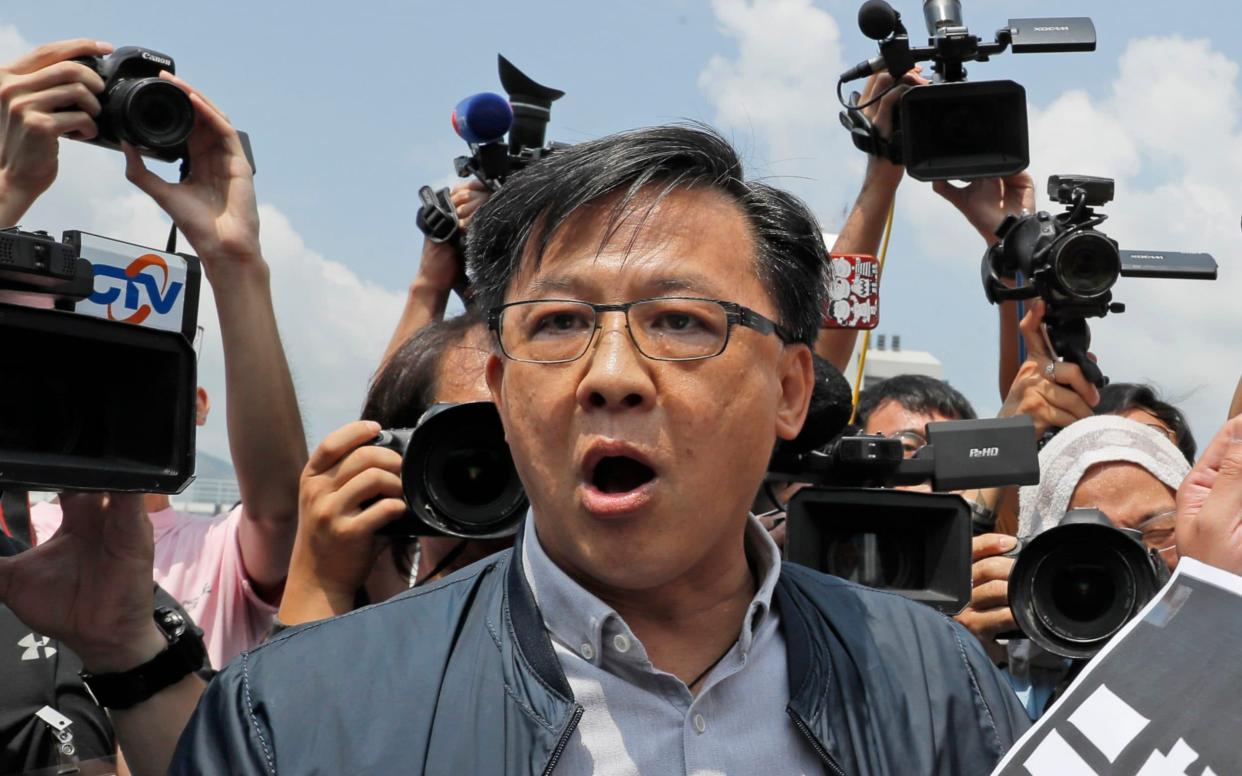Pro-Beijing politician stabbed in Hong Kong amid escalating violence

A knife-wielding assailant injured a pro-Beijing lawmaker and his assistant in Hong Kong, as tensions worsen with protests nearing the start of a sixth continuous month.
Lawmaker Junius Ho was wounded in his chest, while his assistant’s hand was injured. The two of them, along with the alleged attacker – arrested by police – were all taken to the hospital following the assault, a police source confirmed to The Telegraph.
The Hong Kong government condemned the attack, saying it wouldn’t “tolerate any acts of violence,” and called for the public to remain “peaceful and rational, and to respect each other when expressing their opinions,” according to a statement posted online.
Hong Kong is grappling with its worst political crisis since the former British colony was returned to Beijing rule in 1997. Protests kicked off over a now-withdrawn extradition proposal, but have widened over fears that Chinese Communist Party control is eroding long-enjoyed freedoms in Hong Kong.
Clashes between protesters and police have become increasingly violent, polarising the city, with leading figures on both sides being physically ambushed.
Mr Ho has been targeted by protesters since July after footage circulated of him laughing and shaking hands with suspected gang members who attacked peaceful demonstrators in Yuen Long subway station on their way home.
Activists desecrated his parents’ graves shortly after, and calls to protest at a race course forced Mr Ho to pull his horse, Hong Kong Bet, from competing earlier this autumn.
Last month, Mr Ho was also stripped of an honorary law degree by his alma mater in the UK, Anglia Ruskin University in Cambridge, following an investigation. “Mr Ho’s conduct since he was honoured has caused increasing concern,” the university said.
In a video circulating online of Wednesday’s attack, a man approached Mr Ho, who was campaigning in the Tuen Mun neighbourhood for upcoming local elections, and asked to take a picture together, before taking out what appeared to be a knife from his bag and stabbing the lawmaker.
The man, who called Mr Ho “human scum,” was quickly subdued by onlookers.
Mr Ho has released online a video of himself in a hospital gown, talking about the injury and threat he faced earlier in the morning, in addition to a statement on social media that the wound he sustained wasn't life-threatening.
A protester stabbed #HongKong pro-police legislator Junius Ho in the chest. pic.twitter.com/5lveEsM4EI
— Liam Stone石立安 (@liamstone_19) November 6, 2019
In China, a hashtag about the stabbing is already trending with 140 million mentions, with outrage that an attacker would go after a "Hong Kong patriot."
"It's really outrageous that they hurt Mr Ho! It's attempted murder!," wrote one commenter.
News and information is heavily censored in China, though government censors have allowed selective mention of the protests giving only part of the picture, condemning protesters and praising the police without explaining why activists are angry, and mentioning accusations of police brutality.
Protests are called nearly every day now in the global financial hub, sometimes ending after police deploy tear gas and water cannon in response to protesters’ petrol bombs and bricks.
China’s Communist Party reiterated on Tuesday that it wouldn’t tolerate any “separatist behaviour” in Hong Kong, after some activists called for independence. Vice premier Han Zheng also said on Wednesday that Beijing supported taking more aggressive measures to handle the unrest in Hong Kong.
As the protests have continued, concerns have grown that China might call on military reinforcements to restore order in the city, a move that would be reminiscent of the bloody Tiananmen Square crackdown in 1989 when soldiers fired on peaceful student demonstrators, an event the Communist Party has never fully acknowledged.
What started as outcry against a proposal to send suspects to China where they could face unfair trials given murky courts under Communist rule, has widened into a massive political crisis.
The protests represent the most serious challenge to the rule of Xi Jinping, the leader of the Chinese Communist Party, since he took the reins in 2012.
Chinese Communist leaders have decried the protests as the work of Western governments secretly fomenting unrest to destabilise China without providing any evidence.
Protesters’ demands have also expanded, now calling for an end to Beijing meddling in the territory, the resignation of city chief executive Carrie Lam, for universal suffrage, and an independent probe into police handling of the protests.

